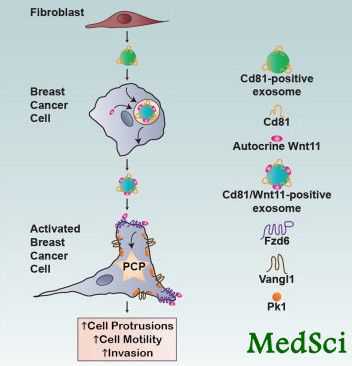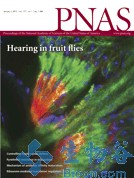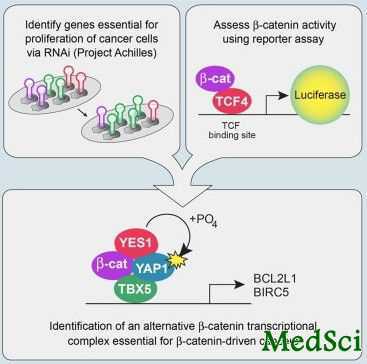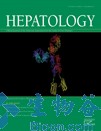Ann Surg Oncol:体重减轻显著影响晚期胃癌患者S-1辅助化疗依从性
2013-01-09 Ann Surg Oncol 互联网 ecoliDH5
S-1用于辅助化疗的依从性不强,针对这种情况,日本神奈川癌症中心Toru Aoyama博士进行了一项研究,其研究目的为,对胃切除术后S-1继续用药的风险因素进行阐述。该项研究结果已在2012年12月16日在线出版的《外科肿瘤学年鉴》(Annals of Surgical Oncology)杂志上得到了发表。 该项研究回顾性地筛选了曾接受根治性D2手术的胃癌患者,经过诊断,参试患者病情为2/3期,
S-1用于辅助化疗的依从性不强,针对这种情况,日本神奈川癌症中心Toru Aoyama博士进行了一项研究,其研究目的为,对胃切除术后S-1继续用药的风险因素进行阐述。该项研究结果已在2012年12月16日在线出版的《外科肿瘤学年鉴》(Annals of Surgical Oncology)杂志上得到了发表。
该项研究回顾性地筛选了曾接受根治性D2手术的胃癌患者,经过诊断,参试患者病情为2/3期,肌酐清除率大于60 ml/min,并且于2002年6月至2011年12月期间,这些患者在本研究单位接受了S-1辅助化疗。研究人员同时对S-1治疗失败时间(TTF)进行了测算。
最终,共有103例患者被筛选进入该研究。经过对TTF曲线进行各临床因素分层分析,并经对数秩检验对比后,研究人员发现,体重减轻(BWL)15%可视作临界点。单变量及多变量Cox比例风险分析均表明,体重减轻为显着独立性风险因素。此外,在对包括8例因复发而中止S-1治疗患者亚群进行的单变量及多变量分析表明,体重减轻也仍是一个显着因素。对于BWL < 15的患者,6个月继续用药率为66.4 %,而BWL ≥ 15 %的患者为36.4 %(P = .017)。
Toru Aoyama博士最终认为,对2/3期接受D2胃切除术的胃癌患者,体重减轻为通过S-1辅助化疗依从性最重要的风险因素。因此,为改善药物依从性,从而提高患者存活时间,关键需要在进行S-1辅助化疗前保持患者体重。该项研究同时强调,对于因晚期胃癌而接受胃切除术的患者,需要针对围手术期营养干预进行更加充分的研究。

DOI: 10.1245/s10434-011-2158-5
PMC:
PMID:
Toru Aoyama MD, Takaki Yoshikawa MD, PhD, Tsutomu Hayashi MD, Hiroshi Kuwabara MD, Yo Mikayama MD, Takashi Ogata MD, PhD, Haruhiko Cho MD, PhD, Akira Tsuburaya MD, PhD
Background The peritoneum is still the most frequent site of recurrence in stage II/III gastric cancer patients, although the survival rate was improved by the introduction of S-1 adjuvant chemotherapy. The objective of this retrospective study was to clarify the risk factors for peritoneal recurrence in patients who received S-1 adjuvant chemotherapy. Methods Peritoneal recurrence-free survival was examined in 100 gastric cancer patients who underwent curative D2 surgery, which were diagnosed with stage II or III disease pathologically, and received adjuvant S-1 between June 2002 and March 2011. The univariate and multivariate analyses were performed to identify risk factors by a Cox proportional hazards analysis. Results The P-RFS was 64.3% at 3 years and 58.8% at 5 years. A total of 18 patients were diagnosed with peritoneal recurrence. The macroscopic tumor diameter, depth of tumor invasion, and lymph node metastasis were the significant factors identified by the univariate analysis, while the tumor diameter and lymph node metastasis were the only significant independent risk factors identified by the multivariate analysis. Conclusions The macroscopic tumor diameter and presence of lymph node metastasis were the most important risk factors for peritoneal recurrence. When patients had these risk factors, S-1 was not sufficient to inhibit peritoneal recurrence. A novel adjuvant chemotherapeutic agent targeting peritoneal metastasis in these patients should be developed.
本网站所有内容来源注明为“梅斯医学”或“MedSci原创”的文字、图片和音视频资料,版权均属于梅斯医学所有。非经授权,任何媒体、网站或个人不得转载,授权转载时须注明来源为“梅斯医学”。其它来源的文章系转载文章,或“梅斯号”自媒体发布的文章,仅系出于传递更多信息之目的,本站仅负责审核内容合规,其内容不代表本站立场,本站不负责内容的准确性和版权。如果存在侵权、或不希望被转载的媒体或个人可与我们联系,我们将立即进行删除处理。
在此留言














#辅助化疗依从性#
76
#Oncol#
64
#胃癌患者#
78
#晚期胃癌#
71
#依从性#
68
#体重减轻#
58
#S-1#
68